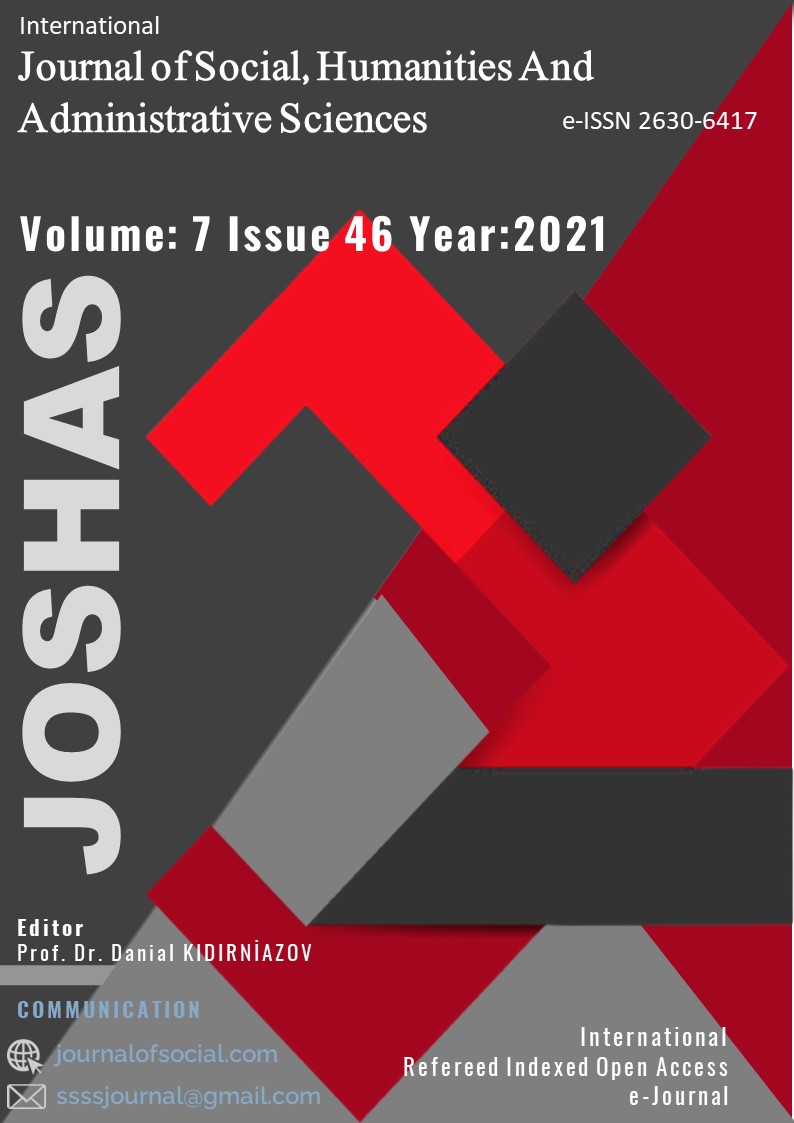Author :
Abstract
Cumhuriyet öncesi ve sonrası dönemde Doğu ve Güneydoğu bölgelerinde dinî hayatın sürdürülmesini ve canlılığının korunmasını sağlayan iki önemli kurum vardır: Birincisi tekke/tarikatlar diğeri de medreselerdir. Bu tekke ve medreselerin gelişmesinde, dinî hayatın neşvünema bulmasında, en önemli modeller medrese âlimleri olmuştur. Bu bildiride; Muş il merkezinde yaşayan müderrislerin toplumsal yaşamdaki rolü üzerinde durulacaktır. Bu amaçla bu müderrislerin/kanaat önderlerinin bölgenin manevî, sosyal, kültürel kalkınmasına katkıları ve bu katkıların sosyal barışın tesisinde rolü araştırılacaktır. Bu çerçevede yüz yüze görüşme tekniği kullanılarak medrese hocası/hocalarıyla mülakat yapılacaktır. Bu görüşmeler çerçevesinde barış ve arabuluculuk, yardımlaşma, dayanışma, sivil inisiyatifi geliştirme, bölgenin maddî ve manevî kalkınması gibi konularda sorular yöneltilecektir. Mülakatlar neticesinde elde edilen bilgiler analiz edilecek ve birtakım sonuç ve önerilerde bulunulacaktır.
Keywords
Abstract
In the period before and after republic, there are two important institutions that provide the resumption and vitality of religious life in the East and Southeast of Turkey: The first is lodge/tariqats and the other is madrassas. The most important models in the development of lodge and madrasas, and the improvement in religious life have been madrasa scholars. In this paper; the role of the müderris, who live in Mush city center, in social life will be focused. For this purpose, these müderris’/opinion leaders’ contributions in the region’ spiritual, social and cultural development and the role of these contributions in the establishment of social peace will be explored. In this context, interviews will be held with madrasa teacher/teachers by using face to face interview technique. Within the framework of these interviews questions will be asked in areas such as peace and negotiation, cooperation, solidarity, developing civil initiative and the material and spiritual development of the region. The information obtained during the interview’s result will be analyzed and some conclusions and recommendations will be given.
Keywords
- Bala, Sabahattin. (2013).“Şark Medreselerinin Öğretim Yöntem-Teknikleri ve Pedagojik Değerlendirmeleri”,
- Bala, Sabahattin. (2013).“Şark Medreselerinin Öğretim Yöntem-Teknikleri ve Pedagojik Değerlendirmeleri”,Medrese ve İlahiyat Kavşağında İslâmî İlimler (Uluslararası Sempozyum) I, Bingöl: Bingöl Üniversitesi Yayınları.
- Buhârî, Ebû Abdillah Muhammed b. İsmâil. (1980). el-Câmiu’s-Sahîh. Kahire: el-Matbaatu’s-Selefiyye. Çiçek, M. Halil. (2009). Şark Medreselerinin Serencâmı. İstanbul: Beyan Yayınları.
- Hamidi, Muhammet Sadık. (2012). “Doğu ve Güney Doğu Medreseleri’nin Mahiyeti ve Ders Müfredatı’nın Islah Önerisi”, Medrese Geleneği ve Modernleşme Sürecinde Medreseler I, Muş: M.Ş.Ü. Yayınları.
- Pekasil, Tahir. (2015). “Barışın Uzanan Eli Olarak Din Görevlisi: Geleneksel Dini Statülerin ToplumsalUzlaşıya Katkı İmkanları: Mardin Örneğinde Seydalar”, V. Ulusal Din Görevlileri Sempozyum Bildirileri (9-10-11 Mayıs 2014-Mardin): Toplumsal Barışa Katkısı Açısından Cami ve Din Görevlileri, Mardin: Mardin Artuklu Üniversitesi.
- Yalar, Mehmet. (2013). “Seyda, Mela ve Feqilerin Bölgenin Dini ve Kültürel Hayatındaki Yeri”, Medrese Geleneği ve Modernleşme Sürecinde Medreseler I, Muş: M.Ş.Ü. Yayınları
- Abdullah Güler (Hacı Şeref Camii İmamı) ile Muş’ta 22. 07. 2016’da yapılan görüşme kayıtları.
- Abdulkadir Erten (Hacı Salih Camii İmamı) ile Muş’ta 21. 07. 2016’da yapılan görüşme kayıtları. Alattin Bozkurt (Muş İl Müftüsü) ile Muş’ta 25. 07. 2016’da yapılan görüşme kayıtları.
- Celil Aslan (Diwana Mela-Selimiye Camii İmamı) ile Muş’ta 20. 07. 2016’da yapılan görüşme kayıtları. Galip Tuğal (Emekli İmam) ile Muş’ta 30. 07. 2016’da yapılan görüşme kayıtları.
- Hanifi Ballı (Müftü) ile Muş’ta 24. 07. 2016’da yapılan görüşme kayıtları.
- Masum Yıkın (Diwana Mela-Hacı Şeref Camii İmamı) ile Muş’ta 20. 07. 2016’da yapılan görüşme kayıtları. Mehmet Baki Çelik (Lale Camii İmamı) ile Muş’ta 25. 07. 2016’da yapılan görüşme kayıtları.
- Zeki Ekinci (Emekli İmam/Seyda) ile Muş’ta 29. 07. 2016’da yapılan görüşme kayıtları.
- Zübeyir Demir (Emekli Müftü) ile Muş’ta 23. 07. 2016’da yapılan görüşme kayıtları.





